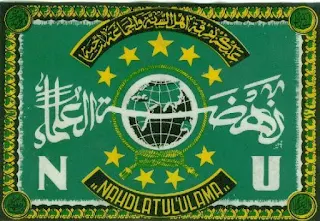Whither the NU traditional intellectuals?
Indonesia’s largest mass Islamic organization Nahdlatul Ulama (NU) reached the age of 90 last week. It was a critical juncture as it marked a transitional decade to the second life cycle of a 100-year period.
In the early 1950s, NU founder Wahid Hasyim was uneasy about the scarcity of intellectuals from the organization. Of course, the intellectuals, to borrow a theoretical framework from Antonio Gramsci, refer to traditional intellectual figures. Gramsci (1971:5-16) divides intellectuals into two categories, traditional and organic. In principle, the traditional intellectual is a category that can be worn by the ivory tower intellectual figures.
Organic intellectuals refer to figures or groups of intellectuals who have dedicated themselves to the struggle for the good of their own communities. Intellectuals of this type appear to represent their own people’s interests.
Organic intellectuals do not appear to a big issue at NU milieu. Through a network of pesantren (Islamic boarding schools), the NU has given birth to religious and social groups that perform social improvement at the grassroots level.
Instead, traditional intellectuals have remained scarce at the NU for a fairly long period. The elite of Nahdliyin (the NU people) of that time were dominated by a group of organic intellectuals rather than traditional intellectuals. What made Wahid Hasyim feel anxious 60 years ago should now get a huge response from the NU elite.
Why are traditional intellectuals important for the NU moving forward? Ninety years is almost a century, and should lead NU into maturity. Moreover, when NU enters its second century, it will instantly be faced with two challenges.
First, Indonesia is predicted to become one of the 10 strongest economies in the world by 2025. This prediction is based on the strength of economic fundamentals and its accomplishments to date. NU must respond to the projected national socioeconomic development.
Second, in 2045, Indonesia will enter a new phase of national social development: the golden generation. This phase is the blessing of the so-called demographic bonus or demographic dividend marked with the highest population of productive age people. NU should become an important agency for the preparation of the golden generation, and should not merely become a spectator.
Greater attention has been directed to the amount of NU members in the political realm. Yet, similar attention should be given to the current number of NU members in many areas of life.
Moreover, in the next five years, the number of pesantren alumni who are now studying a wide range of disciplines, including science and technology, on the so-called “secular campuses” will be reinforcing the growing potential of new middle-class intellectuals within the NU. This is thanks particularly to the Religious Affairs Ministry that provide scholarships for them.
The small number of traditional intellectuals could potentially reduce internal efforts for social transformation within the NU, especially being faced with new challenges during its next era.
The growing group of traditional intellectuals in this decade actually paves the way for the NU to empower itself from within. The existence of this group of intellectuals further complements and strengthens the organic intellectuals within the NU.
Those traditional intellectuals will lead to growing numbers of emerging middle-class NU members. New dwellings and professional positions have started to become occupied by many NU individuals.
However, they are faced with many challenges. They must prioritize, putting these emerging middle-class individuals within the NU as the target of their movement, while dealing with the Islamist movements’ new emotionally sensitive ideology.
Therefore, it is time for the NU elite to develop and maximize the role of the traditional NU intellectuals in particular and the larger NU new middle class in general for the benefit of the community. If the NU elite can do so, these traditional NU intellectuals in particular and the larger NU new middle class in general would be able to bring substantial benefits and changes to the NU, and to strengthen its social role.
The Association of NU Scholars (ISNU) should play a key role in bringing the traditional NU intellectuals into the center of the NU movement. Mapping intellectuals of this kind is an initial but key step.
When both organic and traditional intellectuals gain a place in the heart of NU, they can bring about a more promising future for NU people themselves and communities at large.
In collaboration with intellectuals with pesantren background as organic intellectuals, traditional intellectuals with their power of ideas and capacity for articulation can also be a driving force for the occurrence of a change for the better life.
Akh. Muzakki, Surabaya. The writer, chairman of East Java’s LP Ma’arif Nahdlatul Ulama and member of East Java’s board of education, lectures at the State Institute of Islamic Studies (IAIN) Sunan Ampel in Surabaya.
Post: Jakarta Post
Repost: Pengurus Pusat Rabithah Ma'ahid Islamiyah Nahdlatul Ulama
Repost: Pengurus Pusat Rabithah Ma'ahid Islamiyah Nahdlatul Ulama




Komentar
Posting Komentar